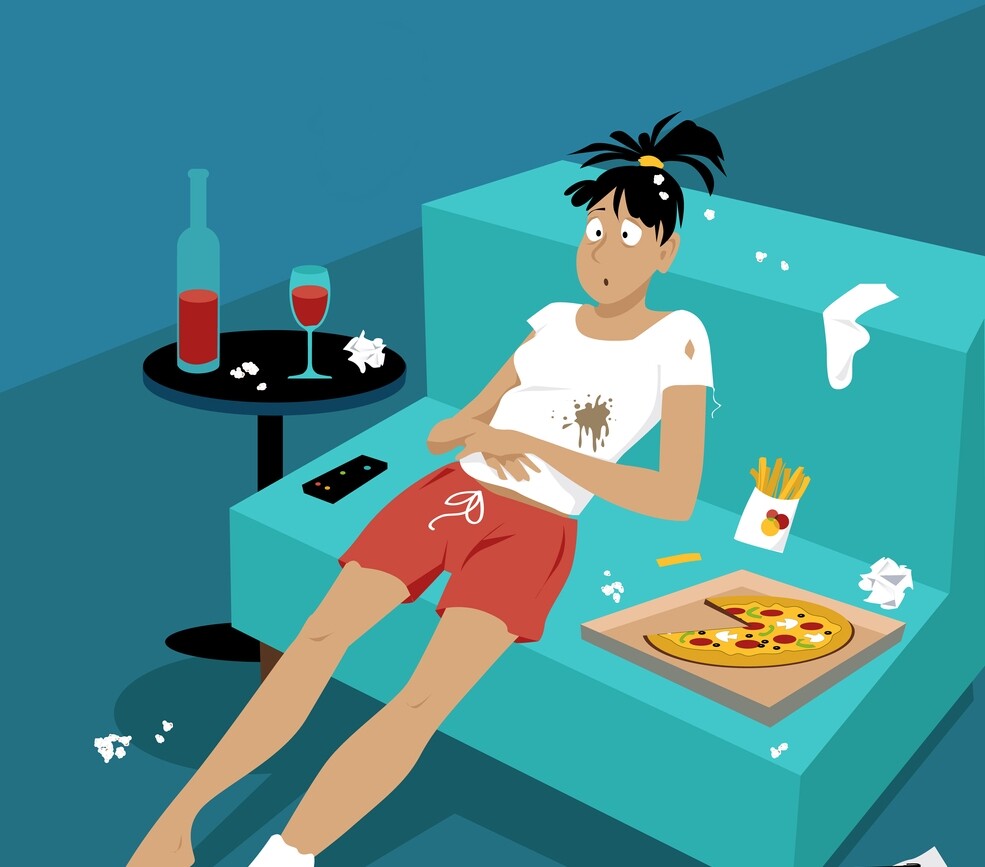Can you imagine living exclusively on chips and fried eggs for a lifetime? For people with selective eating disorders (also known as Avoidant Restrictive Food Intake Disorder or ARFID), this scenario is a bitter reality.
French fries, pizza etc.
French fries and fried eggs every day: For Katey Loughran from Great Britain, these dishes were on the daily menu for around 30 years. This had nothing to do with laziness. The reason was that when she thought about other foods, panic attacks came over her. “If anything else comes near my mouth, I have to gag,” she told the British Daily Mail. Even at her own wedding, the British woman, who was not heavily overweight despite fast food, ate her self-appointed favourite dish. Her guests, however, enjoyed a three-course meal.
Something similar was experienced by Stacey Irvin and Claire Simmons from Great Britain. The former ate almost exclusively Chicken McNuggets for 15 years of their lives – according to the “Daily Mail” she never touched any fruit or vegetables. It’s hardly surprising that she was hospitalized with a severe vitamin and mineral deficiency at some point. Simmons, on the other hand, made her fondness for Pizza Margherita public in 2012. She would have eaten nothing else since she was two years old. The fear of eating anything else was too great, she told to ” The Sun”.
What is a selective eating disorder?
Scientists refer to this one-sided form of nutrition as Selective Eating Disorder – the affected persons can compulsively eat only one kind of food, all other foods are not accepted. In most cases, this still quite unexplored disorder occurs in childhood. For those affected, the unbalanced diet usually leads to serious illness due to the serious vitamin and mineral deficiency. These include not only diabetes, gallstones, gout and cardiovascular diseases, but also psychological problems such as depression and social impairments. The reasons for a selective eating disorder can be of very different nature. As the British online magazine “Really” reports, the problematic eating behavior can be caused by trauma or negative memories of certain dishes.
What can you do about it?
First of all: There is no patent solution for the disease. Those who want to treat an eating disorder usually seek help in psychotherapy. In Katey Loughran’s case, hypnotherapy obviously helped. “Immediately after the hypnosis she bit into a pear, ate spinach, seeds, nuts, yoghurt, cucumber, bananas, beans and apples”, explained therapist David Kilmurry. Slowly but surely her menu was expanding.

